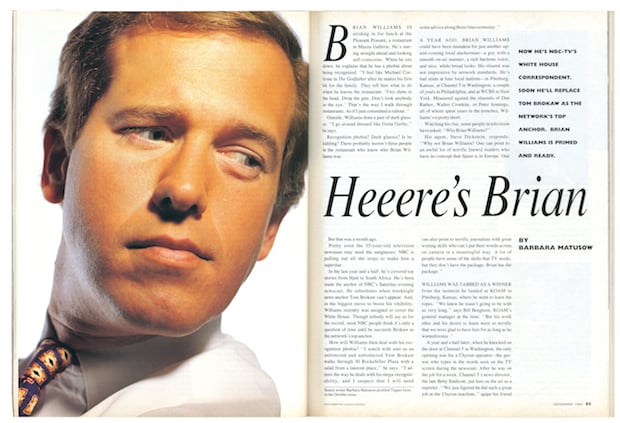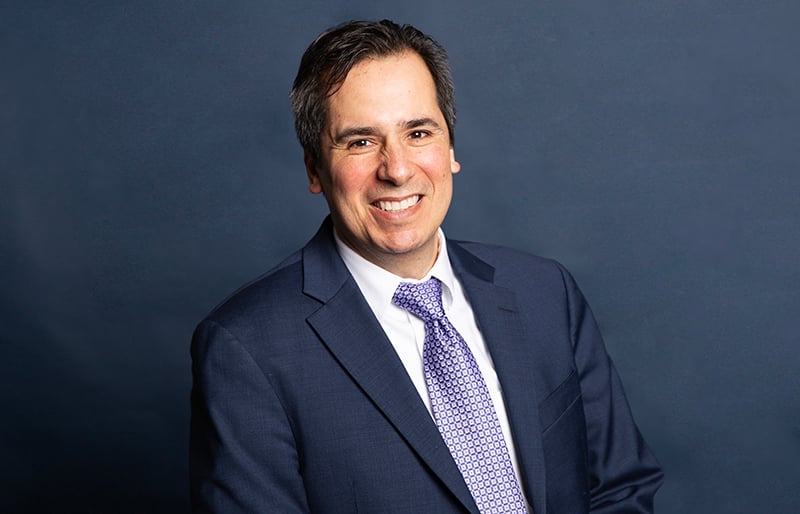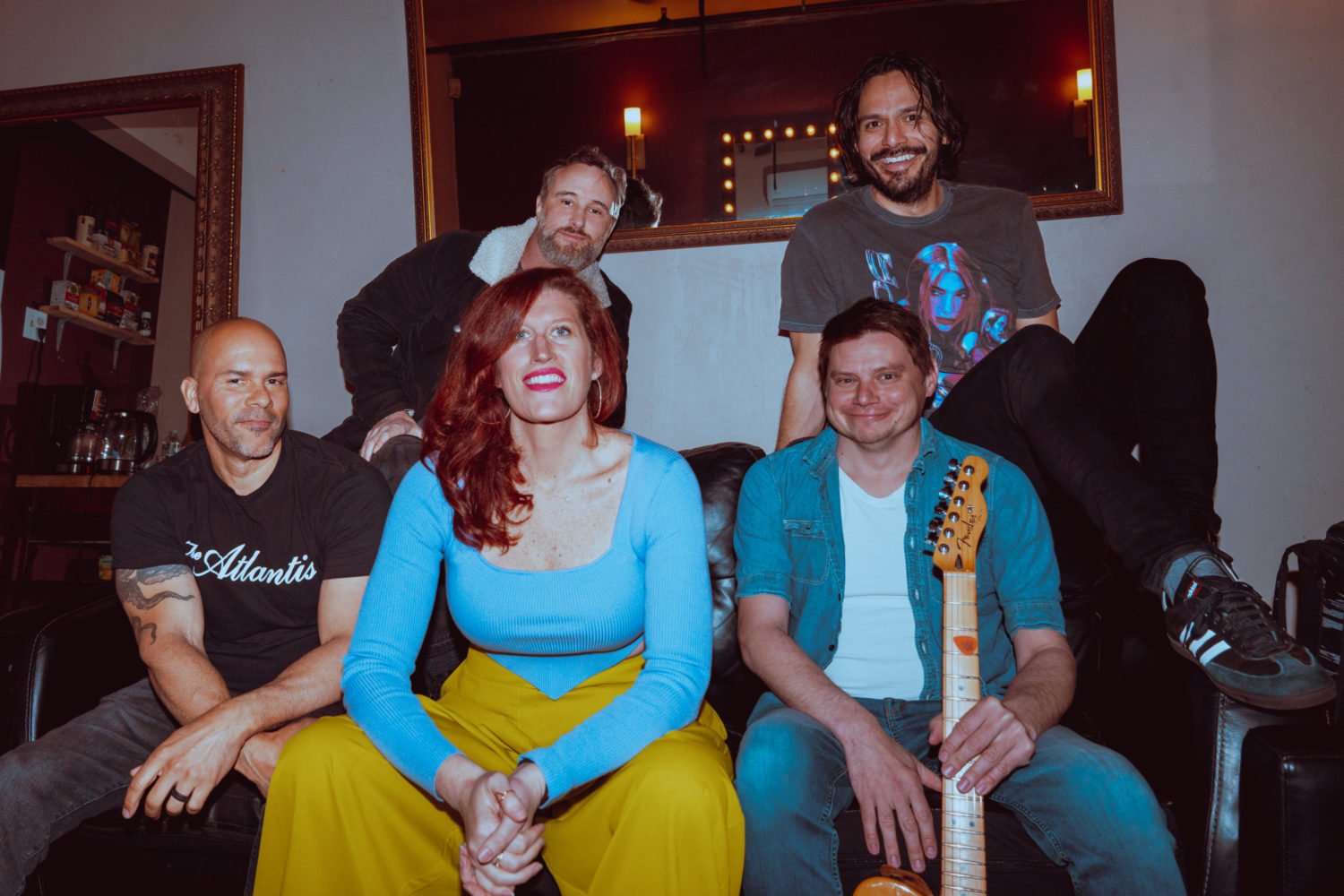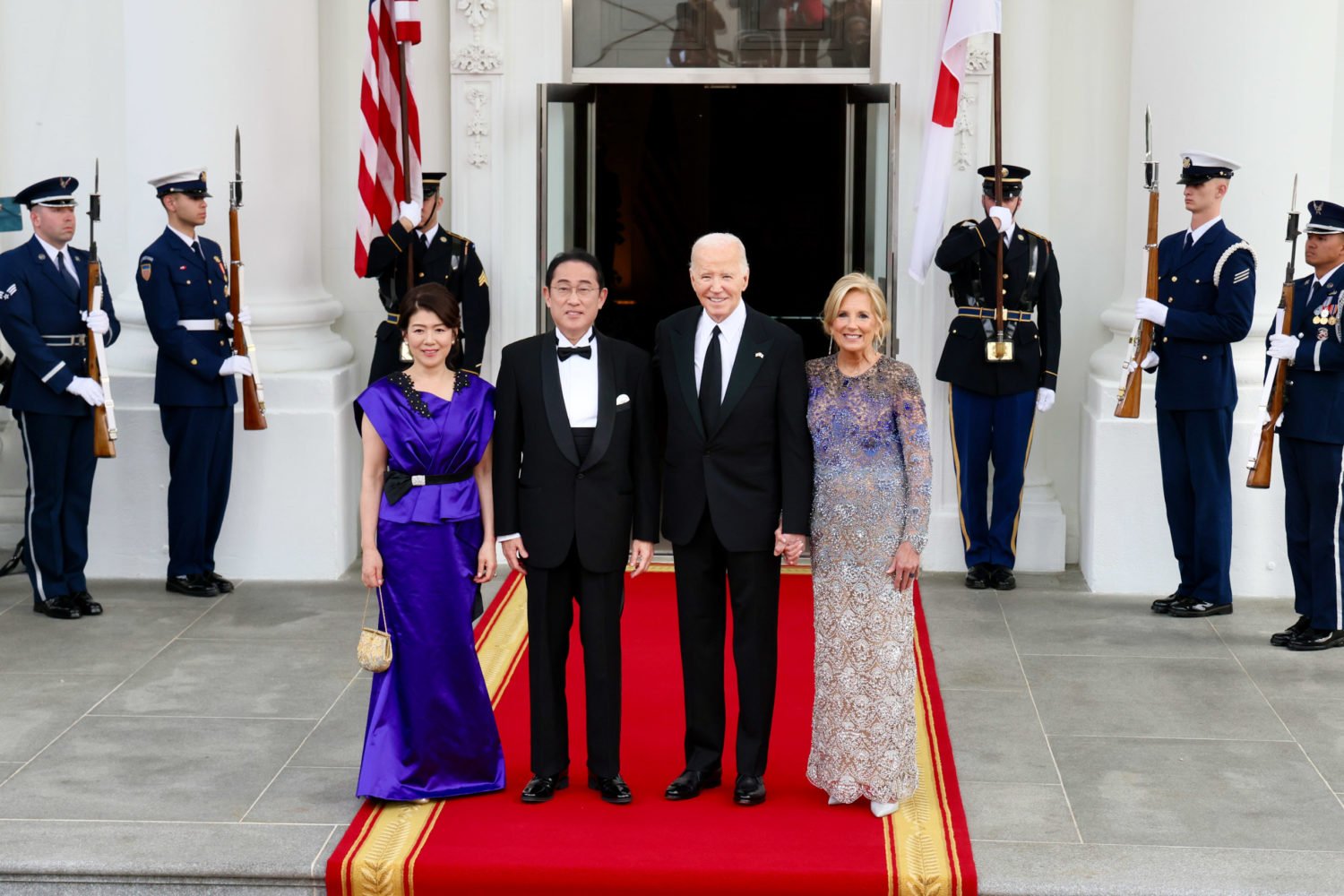BRIAN WILLIAMS IS striding in for lunch at the Pleasant Peasant, a restaurant in Mazza Gallerie. He’s staring straight ahead and looking self-conscious. When he sits down, he explains that he has a phobia about being recognized. “I feel like Michael Corleone in The Godfather after he makes his first hit for the family. They tell him what to do when he leaves the restaurant: ‘Two shots in the head. Drop the gun. Don’t look anybody in the eye.’ That’s the way I walk through restaurants. As if I just committed a rubout.”
Outside, Williams dons a pair of dark glasses. “I go around dressed like Greta Garbo,” he says.
Recognition phobia? Dark glasses? Is he kidding? There probably weren’t three people in the restaurant who knew who Brian Williams was.
But that was a month ago.
Pretty soon the 35-year-old television newsman may need the sunglasses: NBC is pulling out all the stops to make him a superstar.
In the last year and a half, he’s covered top stories from Haiti to South Africa. He’s been made the anchor of NBC’s Saturday-evening newscast. He substitutes when weeknight news anchor Tom Brokaw can’t appear. And, in the biggest move to boost his visibility, Williams recently was assigned to cover the White House. Though nobody will say so for the record, most NBC people think it’s only a question of time until he succeeds Brokaw as the network’s top anchor.
How will Williams then deal with his recognition phobia? “I watch with awe as an unfettered and unbothered Tom Brokaw walks through 30 Rockefeller Plaza with a salad from a takeout place,” he says. “I admire the way he deals with his mega-recognizability, and I suspect that I will need some advice along those lines someday.”
•••
A YEAR AGO, BRIAN WILLIAMS could have been mistaken for just another up-and-coming local anchorman—a guy with a smooth on-air manner, a rich baritone voice, and nice, white-bread looks. His résumé was not impressive by network standards. He’s had stints at four local stations—in Pittsburg, Kansas; at Channel 5 in Washington; a couple of years in Philadelphia; and at WCBS in New York. Measured against the résumés of Dan Rather, Walter Cronkite, or Peter Jennings, all of whom spent years in the trenches, Williams’s is pretty short.
Watching his rise, some people in television have asked, “Why Brian Williams?”
His agent, Steve Dickstein, responds: “Why not Brian Williams? One can point to an awful lot of terrific [news] readers who have no concept that Spain is in Europe. One can also point to terrific journalists with great writing skills who can’t put their words across on camera in a meaningful way. A lot of people have some of the skills that TV needs, but they don’t have the package. Brian has the package.”
•••
WILLIAMS WAS TABBED AS A WINNER from the moment he landed at KOAM in Pittsburg, Kansas, where he went to learn the ropes. “We knew he wasn’t going to be with us very long,” says Bill Bengtson, KOAM’s general manager at the time. “But his work ethic and his desire to learn were so terrific that we were glad to have him for as long as he wanted to stay.”
A year and a half later, when he knocked on the door at Channel 5 in Washington, the only opening was for a Chyron operator—the person who types in the words seen on the TV screen during the newscast. After he was on the job for a week, Channel 5’s news director, the late Betty Endicott, put him on the air as a reporter. “We just figured he did such a great job at the Chyron machine,” quips his friend Bernie Smilovitz, who then was doing sports at the station. “We all kind of went, ‘Wow! Talk about moving up the ladder.’”
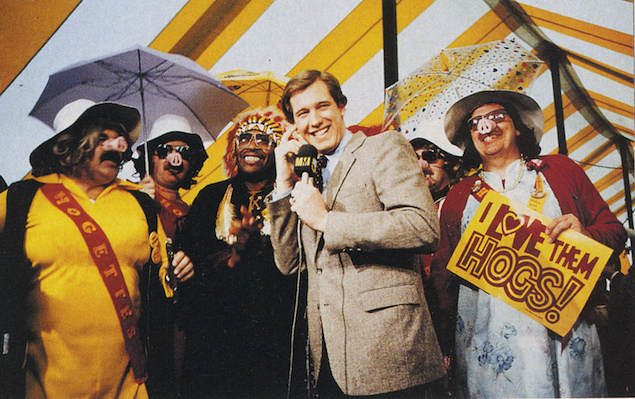
Promotions quickly followed at CBS stations in Philadelphia and New York. At WCBS, he was being groomed to replace long-time anchorman Jim Jensen, a local institution. When Jensen was away for six months being treated for alcohol-and-drug dependency, Williams filled in. He also got such plum out-of-town assignments as the San Francisco earthquake, the dismantling of the Berlin Wall, and major Supreme Court decisions.
“He’s the land-speed expert on Congress and the Supreme Court,” says Jean Harper, a veteran producer at WCBS who often traveled with Williams. “He’s the kind of guy producers kill for.”
The reason, according to Harper and others, is that Williams is unusually well prepared. He’s an information sponge who can rattle off facts on everything from Middle East terrorism to the history of the presidency. Once, when a jetliner was circling the airport at Newark and dumping fuel, WCBS went on the air live because it appeared that the plane, an L-1011, was going to have to make an emergency landing. In a scene worthy of the movie Broadcast News, Williams walked into the control room and started feeding information to the on-air anchor — the way the plane’s engines were configured, its short-haul capacity, its safety record, and which airlines still had them in their fleet.
“I was Albert Brooks, feeding information to William Hurt,” he says with touch of pride.
Unlike Brooks, who got tongue-tied and sweaty in his Broadcast News role, Williams makes live TV look so effortless that friends and co-workers often say he was born to be on television. “I was just amazed at his ability,” says Don Browne, former executive vice president of NBC News, who used to watch Williams on the rival New York station. I was also amazed that nobody else at NBC seemed to be paying any attention to him.”
•••
WILLIAMS SAYS HE GOT THE IDEA of going into TV news one day in his early 20s when he was watching a local newscast in New York. “I said to myself, ‘I can do that.’” His family tells it differently. When he was a little boy, they say, he wouldn’t eat his dinner until his idol, Walter Cronkite, had said, “And that’s the way it is.” When he was 7 or so, he would take the cardboard tube from a paper towel roll and pretend to read the news into it. His father, a news junkie, got Brian a Mr. Microphone so the boy could practice retelling the news he had heard that day. “My parents used to call him out in his pajamas at night to entertain their friends,” recalls his older brother, Richard.
Brian grew up in a middle class family in northern New Jersey, the youngest of four children. His father, Gordon Williams, was a retail consultant who worked for a trade association in New York. His mother, Dorothy, played lead roles in amateur theater.
Brian inherited his mother’s quick wit and her gift for mimicry. He took part in amateur theatrical productions, too. but news was his first love. “I remember him turning off the football games to watch William F. Buckley,” brother Richard recalls.
Prodded by his father, Brian was caught up early in current affairs. When he was 10, he saw a photo of Lyndon Johnson holding his head in his hands, and he wrote the White House a letter urging the President to buck up. Another time he wrote a letter to the Ford Motor Company with a safety-design suggestion. “I used to read Popular Science,” he wrote by way of explanation.
He became a voracious reader of fiction—and newspapers, magazines, books on history, government, and the Supreme Court—stuffing his head with facts he figured he would be able to use eventually. “He has always worked to get to this position,” says Smilowitz. “He has always known where he was going.”
Brian insisted on paying his own tuition at his Catholic high school, and he later worked his way through a local community college, busing tables at a pancake house and clerking at Sears. After graduation, he wound up in Washington, enrolling first at Catholic University, then switching to George Washington University because it offered more night classes. By then he had caught the political bug. He got an internship at the Carter White House, which turned into a paying job.
That marked the end of his formal education. “I had this choice to make,” he says. “I called my parents and said, ‘I’m never going get this chance to work the White House again.’ I was having the time of my life, working with Harvard and Yale grads. Me, a mutt from the Jersey shore.”
After Jimmy Carter was defeated in 1980, Williams, just 22, was hired by the political-action committee of the National Association of Broadcasters. He likes to downplay the experience, portraying himself as a messenger who delivered packages to congressional offices. But his boss at the NAB, Ken Schanzer, says, “Although he was only an aide, he helped us raise money, organize nationally, and was a key member in all the discussions charting the direction in which we were going to go. I thought he was enormously mature and politically sophisticated for his years.”
One reason Williams went to work at the NAB is that he knew it was a place where he would be in contact with TV-station executives—people who hire reporters. It was an unusual strategy, but it worked. Schanzer, who knew that Williams had his heart set on broadcast news, contacted an old friend, Bill Bengtson, the station manager in Pittsburg, Kansas. Williams was on his way.
•••
BY THE TIME NBC’S DON BROWNE spotted Williams in 1992, the network was looking for Tom Brokaw’s successor. Earlier in his career, Brokaw probably would have resisted. But in his early 50s—and after a decade as NBC’s top anchor—he was beginning muse aloud about life after television. Ratings for the NBC Nightly News were respectable, but it seemed unlikely that he would ever overtake the ratings leader, ABC’s Peter Jennings.
Brokaw also had a number of outside interests, including a South Dakota radio station and a 4,000-acre ranch in Montana. Rumors would surface periodically that he was thinking about running for the US Senate in Montana or his native South Dakota.
After Bill Clinton’s election, Brokaw, an avid outdoorsman and environmentalist, was offered the job of director of the National Park Service. He admitted that he was tempted by the offer but said he didn’t want to leave NBC News in the turmoil that existed then.
General Electric, NBC’s parent company, had mandated such stringent cuts that staffers were hard-pressed to cover the news. Morale was terrible. The NBC News president at the time, Michael Gartner, was a chilly former newspaperman who made no secret of his contempt for TV. He was generally loathed by the staff. And rumors were rife that General Electric was getting ready to sell all or part of NBC.
Staffers looked to Brokaw, who had a lot of influence within the corporation, to protect them, but there was just so much he could do. “Everybody was leaning on Tom, and it took its toll,” says an NBC insider. “For the first time, he was asking himself, ‘How am I going to leave this place? Will there be anybody to succeed me?’”
•••
THERE WERE NO OBVIOUS CANDIDATES in-house. Stone Phillips, who anchors Dateline NBC with Jane Pauley, was hired with some hope that he might inherit Brokaw’s job, but he turned out be more of a “magazine person”—network shorthand for someone more interested in television than in news.
Brian Williams, on the other hand, had a reputation for being a hard-news type. He was young, but he didn’t look callow. And his relaxed style made it easy for him to connect with audiences.
Don Browne says he was warned that hiring Williams would be hard, if not impossible. Williams already was making a lot of money at WCBS and was set to succeed Jim Jensen. But after his first dinner with Williams, Browne was convinced that he’d found his man. Over the next few weeks, Williams met with the top brass at NBC, listening as they sketched dazzling possibilities. “He couldn’t believe what they were telling him at the time—their plans and what they saw was his potential,” says his father. Steve Dickstein, his agent, also began to like the possibilities for his client at NBC.
The other person whose blessing was crucial was Brokaw. “At this time, when we were getting pretty far down the road, I had to go to the mountain and visit Tom,” says Don Browne. “I told him, ‘We would like you to help us out. We need you to tell [Williams] how much you believe in NBC and that he will in fact have an important part in its future.”
In setting up a place to meet, neither Brokaw nor Williams wanted to be recognized. Williams suggested the Sherry-Netherland hotel. “Too crowded,” said Brokaw. Williams, who does a great Brokaw imitation, mimics the anchorman’s instructions. “Pierre. Lobby. Look for me.”
They sat down in an alcove and ordered a bottle of Evian. Then another. And another. “We probably had a gallon of water that night,” says Williams. “I thought we were going to have dinner, but I was too polite to bring it up.” Still, the meeting went well, and it was clear to Williams that Brokaw wanted him to come aboard.
About this time, CBS got into the act, promising Williams a lucrative deal that combined local and network exposure. But it was too late. NBC was offering Williams a reported $2 million a year, the right to do “interrupt” bulletins about major news stories when Brokaw wasn’t available, and a clear shot at the top anchor job, provided he prove himself.
“After much soul-searching and long talks at home, I made the decision that in adversity there are many possibilities,” Williams says. “This was a news division that was on its knees. I swallowed hard, and I went.”
•••
IT’S A SUNDAY AFTERNOON IN early October, and Brian Williams and his wife, Jane, are lounging on the couch of their rented house in Kalorama—a huge, Italianate stone structure that looks like an ambassador’s residence. The inside is almost bare, partly because they evidently view Washington as a short-term assignment.
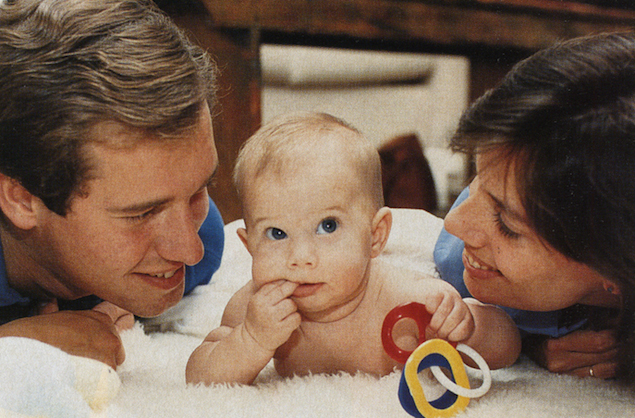
Almost all the furniture, even the art on the walls, is rented. Their real home is in New Canaan, Connecticut—a converted barn on several acres that used to belong to Jane’s parents; a caretaker now looks after it.
Jane is a former television producer. She and Brian met when she was executive producer of the old Panorama show on Washington’s Channel 5. Informal and friendly, she is a slim, attractive woman with big blue eyes and short, glossy black hair. She and Brian and their two children, Allison, 6, and Douglas, 3, have just come back from a school outing in rural Maryland, picking cucumbers for Martha’s Table, which feeds the needy. Brian is wearing a polo shirt and khaki bermudas—surprising for a guy seldom seen in anything other than pinstripes. When he was a volunteer fireman back in Middletown, New Jersey, his nickname was “Permapress.”
Williams is a ’90s dad. He gives the kids their baths and puts them to bed, and he picks up Allison from school when his schedule permits. When the move to Washington was proposed, his brother says, Brian fretted endlessly over the timing, worried about making the move after school had begun for fear it would be hard on his daughter.
Brian says he and Jane are with the kids most of the day when he’s not working. “We take them to the store. We go for walks or throw them in the car and go for a ride. We’re an extraordinarily boring family. The other night I was folding laundry until midnight.”
He and Jane don’t go out a lot. After the kids are in bed, he says, they might watch some TV or read. “I was up reading the Almanac of American Politics till 1 o’clock last night,” he says. “I can never know too much about congressional politics.”
•••
BRIAN WILLIAMS DOESN’T DRIVE when he drinks. He watches his cholesterol. He calls his father, a retiree and widower, at least three times a week. He’s loyal to his friends, and he treats co-workers with the utmost courtesy, which can’t be said of TV stars. Several times he apologizes to me for being so dull. “I drive very fast,” he assures me.
So he’s not a wild and crazy guy. That’s one reason NBC is so high on him. The anchor is the visible representation of what the network stands for, and this disciplined young man is not apt to embarrass NBC. It’s impossible to imagine Williams getting mugged, like Dan Rather, on Park Avenue by a man said to be shouting, “What is the frequency, Kenneth?”
Williams does have his idiosyncrasies, including compulsive neatness. The magazines on the rectangular coffee table in the living room—Time, Newsweek, New Republic, among others—are arranged in four precise rows of six copies each, and Jane says his closets and the inside of his BMW are immaculate.
Bernie Smilowitz loves to tell about the time he and his wife and the Williamses went on a sailing vacation and Brian brought along six white shirts and a blazer. “I said, ‘Hey where do you think we’re going? This ain’t Vegas, baby.’”
Williams is compulsive about work as well. “We’ll be sitting on beach chairs on vacation, and he wants to discuss the foreign policy of Tasmania,” says Smilowitz. “I say, ‘Brian, do me a favor and take an hour off.’”
In spite of his intensity, friends and colleagues say that Williams can be hilarious. Some NBC executives were so taken with his Letterman-like sense of humor that they thought he would make a good host for the Today show. He wasn’t interested.
Williams endears himself to co-workers, clowning around with crews in the field, imitating colleagues, or assuming the roles of imaginary characters, like Lucy, the Williams family dog.
“He is one of the two funniest non-professional comedians I know,” says Ken Schanzer, his old boss, who is now head of a cable enterprise, the Baseball Network. “The other is Bob Costas, who will put me on the floor in a minute. Brian Williams is that funny.”
It’s unlikely the television audience will find out how funny he is. NBC producers have urged him to lighten up on the air, but he resists because he has his own notion of how an anchor should act. He can sound stuffy in interviews, giving little lectures about the importance of news or his interest in the Supreme Court. “I love the dynamics of the court,” he says. “I happen to harbor the belief that Souter will be to Bush what Brennan was to Eisenhower, and I can discuss that for hours. Someday, should I need to know where John Paul Stevens went to law school, I’ll be able to say that on the air.”
•••
IN AN EARLIER ERA, BRIAN WILLIAMS would have received the cold shoulder at NBC when he arrived to take over the White House beat. Twenty years ago, Tom Brokaw did. His background was in many ways similar to Williams’s. Both were successful local anchors—smart, good-looking young men from small towns, with middling educations and huge ambitions. Both were catapulted onto the network scene more for their prestige and visibility. When Brokaw got to the Washington bureau, he was met with contempt—something he overcame with his steady, balanced reporting during Watergate.
Williams hasn’t provoked the same sour grapes. Most of the old Front Page types who looked down their noses at local anchors are gone, and Williams already has had time to prove himself in Haiti, South Africa, and the Middle East.
“We in the rank-and-file have been through some lean years [at NBC News],” says correspondent Robert Hager. “Now things seem to be coming back. We see Brian as a real asset—somebody who is part of that comeback.”
Williams is lucky to have joined NBC News at a time when morale is on the upswing. Part of that better mood can be traced to the departure of Michael Gartner, who resigned after it came to light that producers for Dateline NBC had attached incendiary devices to GM pickup trucks to make sure flames erupted on contact. His successor, CBS veteran Andrew Lack, is seen as more accessible and knowledgeable about television news. And there’s this: General Electric, having come around to the view that NBC’s news division is a valuable asset, has added staff and reopened bureaus. The Washington bureau alone has taken on five new correspondents in the last few months.
Brokaw seems to have a new lease on life, too. Insiders say he’s more relaxed. He’s still a big voice in the editorial mix, but he no longer feels he has to be involved in every decision.
Once accused of sucking up all the air at NBC, Brokaw continues to champion Williams. “When something major breaks, whether it’s an assassination in Mexico or the hint of an invasion in Haiti, Tom is the one who brings up my name,” says Williams. “It’s a generosity that you don’t often see.”
In Washington, NBC bureau chief Tim Russert has taken Williams under his wing, making sure he meets the major players in town. “They won’t let him fail,” says a veteran from another network. “They’ll prop him up with producers if necessary till he finds his way around.”
•••
BUT WILLIAMS DIDN’T ARRIVE here as a novice. He covered national stories as a reporter at WTTG, and Washington lore is practically his hobby. The betting is that he will enhance his standing at the White House, as he’s done with every job he’s held. The only question is his timetable for advancement.
Brokaw’s contract has three more years to go, and last year he said he would probably be ready to move on to other things when it was up. But that was a year ago, and Brokaw is looking chipper now that NBC News is regaining its footing. If the Nightly News suddenly started to move up in the ratings, would Brokaw—or his bosses—want to make a change?
In the meantime, Andy Lack is trying discourage talk about anchor succession. “I think that kind of speculation is kind of dopey,” he says. “The business has changed so much that anchor jobs are not what most young reporters aspire to.” The real action, he indicates, is at the magazine shows, which make far more money for networks than do nightly newscasts.
Perhaps so. But as long as the networks are paying top anchors upwards of $3 million a year and putting them at the center of great national and international events, people will continue to speculate about who is going to be the next Tom Brokaw.
Meanwhile, Brian Williams will play it cool, continuing to take Supreme Court biographies and the Almanac of American Politics to bed with him.
This article appeared in the December 1994 issue of Washingtonian.

